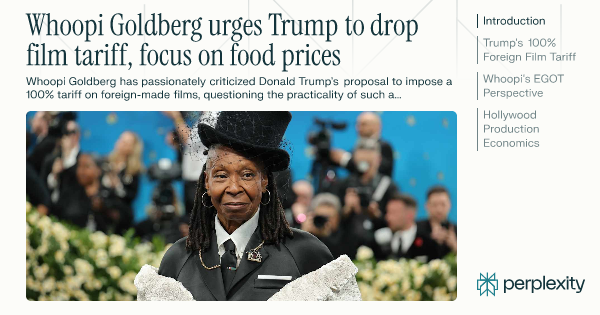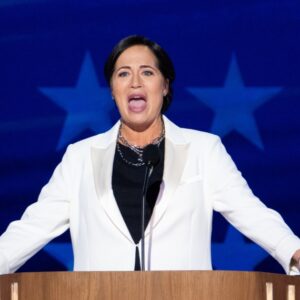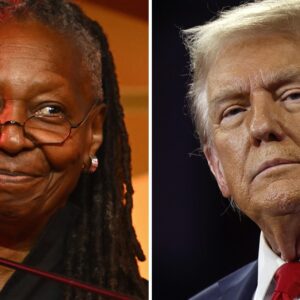Whoopi Goldberg Urges Trump To Tackle 1 Concern Before Enacting Movie Tariffs
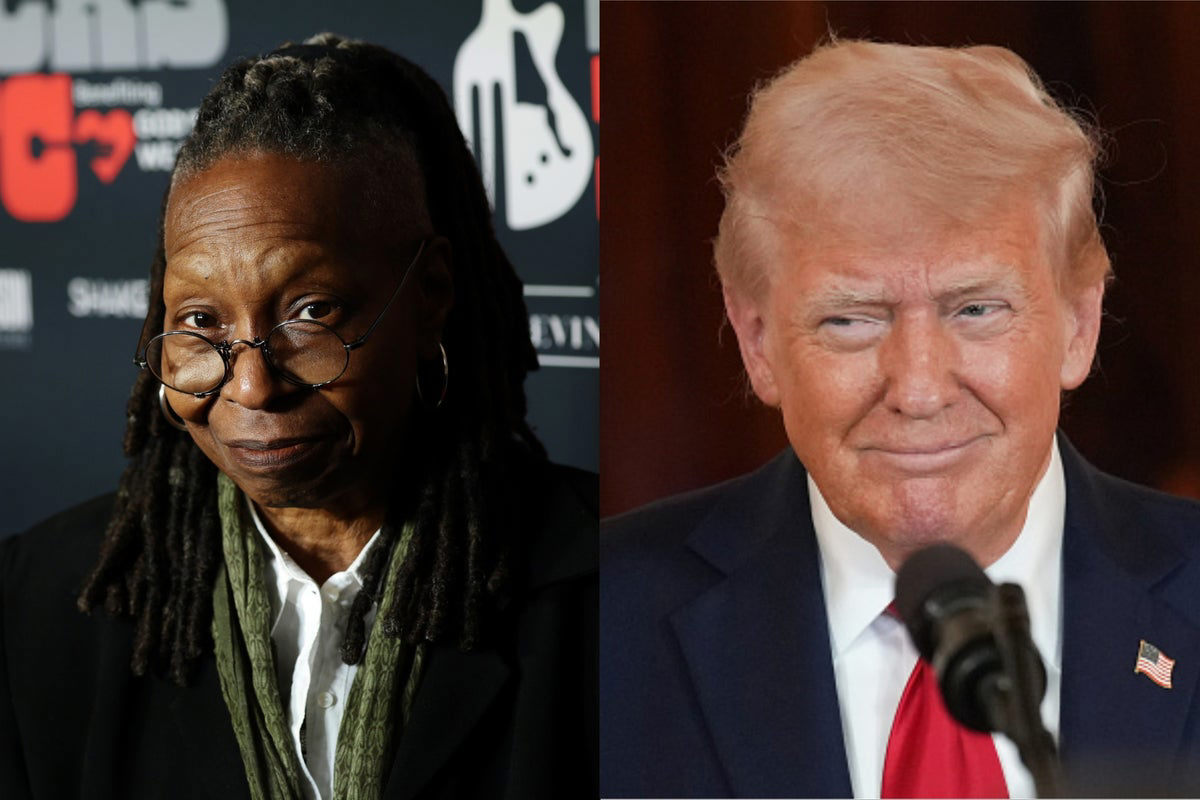
In a recent episode of “The View,” actress Whoopi Goldberg voiced her strong opposition to President Trump’s suggestion of imposing tariffs on films produced outside the United States. The president has threatened to introduce a staggering 100% tariff on these productions, arguing that the migration of film production abroad poses a significant “national security threat.” Goldberg deemed this approach as a misguided allocation of the administration’s resources, emphasizing that there are much more pressing issues that require immediate attention, such as the alarming rise in egg prices.
Goldberg articulated that the president’s view is overly simplistic, missing the nuances of the film industry. She highlighted that when American studios choose to film overseas, they are often collaborating with local talent and resources, making the practical implementation of tariffs more complex than it seems. Co-host Sunny Hostin supported Goldberg’s stance, suggesting that the president appears to lack a proper understanding of how the film industry and its economics operate.
The Economic Impact of Film Production
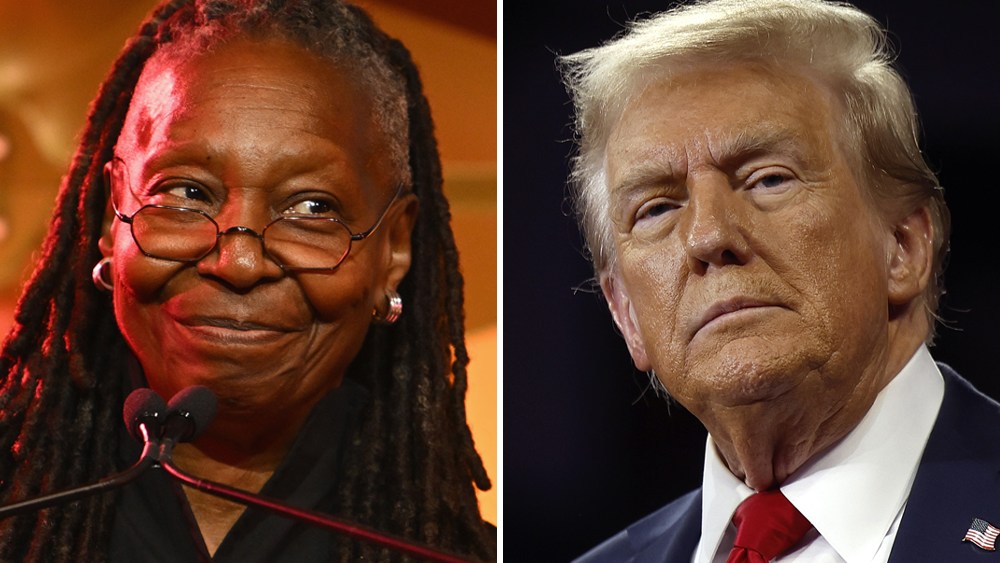
Goldberg also pointed out that despite the increasing trend of films being shot abroad, U.S. studios still control a significant portion of the global box office. In 2023, for instance, the ten highest-grossing films were predominantly produced by American studios, confirming Hollywood’s crucial role in the global film landscape. The reality is that, even with international collaborations, American films continue to be immensely popular, generating billions of dollars and significant economic activity both domestically and internationally.
Prioritizing Real Issues Over Tariffs

Rather than concentrating on imposing punitive tariffs that could stifle creativity and collaboration, Goldberg urged the president to focus on more pressing domestic issues that impact the everyday lives of Americans. Rising prices, whether for basic commodities like eggs or healthcare costs, show that the administration’s energies could be better allocated to tackle these fundamental concerns rather than getting involved in the intricacies of global film production laws.
Goldberg’s concerns reflect broader sentiments within the entertainment industry: tariffs could lead to increased production budgets, higher ticket prices for consumers, and ultimately a diminished selection of films. Moreover, such a move could alienate a large segment of international collaboration, which is the backbone of many successful projects and artistic ventures. It is this very collaboration that enriches the storytelling landscape in Hollywood through diverse voices and perspectives.
The Bigger Picture: Cultural Exchange

Goldberg emphasized the importance of cultural exchange and collaboration in a globalized world. The film industry serves not just as a business but also as a platform for cultural interaction and dialogue. By imposing tariffs, the U.S. risks jeopardizing the enriching collaborations that have historically fueled Hollywood’s artistic endeavors. Many successful films owe their creative vision to international partnerships, which enhance storytelling and broaden audience experiences.
Instead of seeing foreign productions as a threat, Goldberg and other supporters recommend viewing these collaborations as opportunities for growth. In an era where inclusivity and diversity are paramount, embracing global production could prove beneficial for American studios, offering them fresh perspectives and innovative ideas.
Conclusion

In summary, Whoopi Goldberg’s impassioned plea highlights the complexity of President Trump’s proposal to enact movie tariffs, urging him instead to refocus on immediate domestic issues that impact everyday Americans. As the film industry continues to evolve, it’s essential to foster an environment that encourages collaboration rather than erecting barriers that could stifle creativity and cultural exchange. If you resonate with these sentiments, consider voicing your thoughts on the importance of prioritizing real issues over tariffs as our economy and cultural landscape are at stake.
